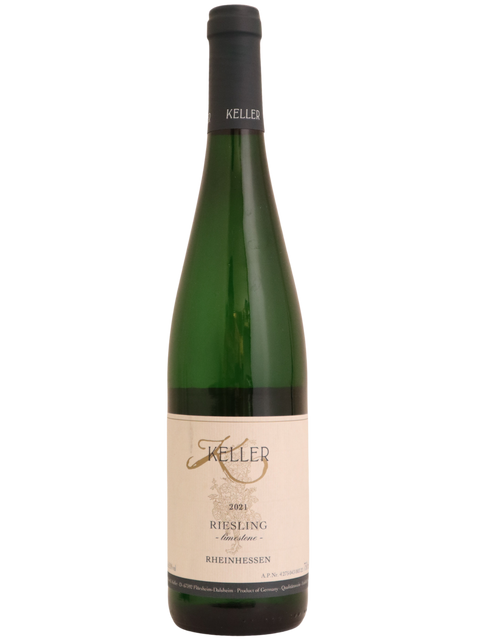
2024 Weingut Keller "Limestone" Riesling Kabinett, Rheinhessen, Germany
Wonderfully aromatic with notes of white peach, lime blossom and pineapple, displaying more complex mineral and honey notes with time in the glass. The palate is displays excellent depth paired with zesty acidity. Enjoy with crab cakes or Japanese dishes.
ABOUT THIS WINE
Limestone is named for the nutrient-rich soils in which it grows. The Keller Limestone Riesling is from Sourced from the Grosses Gewachs vineyards in Westhofen, mainly Kirchspiel. Organically grown, low-intervention winemaking techniques, and vegan.
ABOUT THIS PRODUCER
Klaus-Peter, who trained abroad in South Africa and in Burgundy (at Domaines Hubert Lignier and Armand Rousseau) prior to taking his degree in oenology and viticulture in Geisenheim, has worked alongside his father in the family vineyards throughout much of his life.
The estate has an unbroken history that stretches back to its formation in 1789.
When Klaus-Peter and his wife Julia took over the day to day direction of Weingut Keller with the 2001 vintage, the estate was better known for its traditional dry wines than it was for its dry Rieslings.
In the cellars, Klaus-Peter has made a few changes as well from his father’s era, but the vast majority of the focus continues to be on the vineyard work. The white wines now (particularly the Rieslings) are fermented more in old oak fuder, rather than in stainless steel and indigenous yeasts are relied upon whenever possible for the fermentations. The one relatively novel approach that Klaus-Peter has adopted for many of his white wines is to allow the grapes to macerate on their skins for thirty or forty hours prior to pressing them and running off the juice to fuder for fermentation.
The basic bottling of the white wines are fermented at slightly lower temperatures than the Grosses Gewächs, and they are bottled earlier as well. The Riesling Grosses Gewächs and the G-Max bottling (KlausPeter’s top, old vine dry Riesling cuvée) are allowed to rest on their fine lees until March after the harvest, prior to being prepared for bottling in May, which is done with a very light filtration. The Grosses Gewächs stays on yeast till August or longer and is bottled between August and march of the second year.
